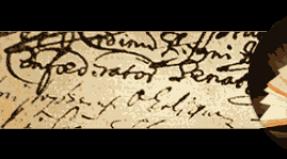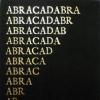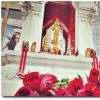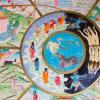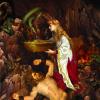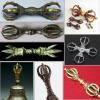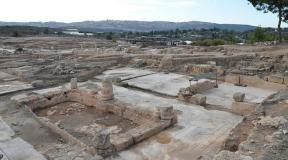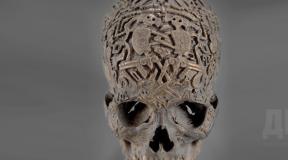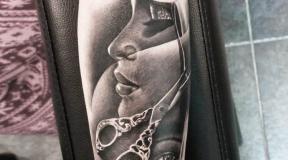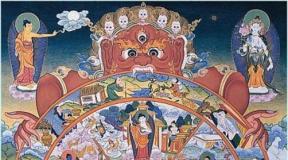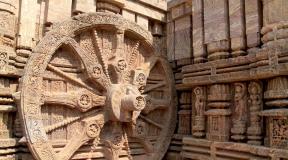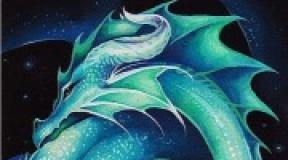What are the next church holidays on August 2. The main prohibition on this day is swimming in open water
On August 2, according to the church calendar, the Day of the Prophet Elijah is celebrated. He was considered the patron saint of warriors, rains, thunder and lightning. About the traditions of the holiday and what not to do on this day - read on.
Once on this day in Russia they celebrated the pagan holiday of Perun - the god of thunder and warriors. After the baptism on August 2, they began to celebrate Elijah's Day, but many old traditions remained.
According to legend, the prophet Elijah rides across the sky in a fiery chariot and throws lightning at those who do not adhere to the law of God.
Traditions on Ilya
The time for haymaking was approaching on 2 August. Our ancestors on this day put the first sheaf in the entryway in the first corner. The Ukrainians believed that this would help to reap a good harvest.
It was also customary to sleep on a mattress filled with the first straw, which supposedly brought happiness.
The farmers were glad that the nights were getting longer and the days were getting shorter, and they said that at this time the horses were full and the worker was getting enough sleep.
Traditions on Ilya: the first sheaf was placed in the entryway, and the cattle were not allowed out into the street
Our ancestors called the night on Ilya "rowan": they believed that on this night there would be lightning and thunder, and the birds would begin to behave strangely, crashing into oncoming objects.
Today Christians pray in churches on Elijah. On this day, it is customary to distribute food to the poor and homeless. They pray to the Prophet Elijah for healing, restoring peace and harmony in the family, protection from enemies, a good harvest, and for unmarried girls - for a good husband.
What not to do on August 2
It was impossible for Elijah to work in the field - a prophet can strike such a person with lightning.
Also, the ancestors believed that on August 2, one should not swim in reservoirs, because lightning strikes from the sky, and evil spirits roam near the water.
Pets and cattle were not allowed out into the street, so that evil spirits would not move into them. And the cats and dogs that did go out were not allowed back into the house that day - they could attract lightning.
On Elijah's Day, you can't shout and sing loudly - this can also attract lightning. You can't stand at the crossroads, because evil spirits gather there.
Any baptized person has a patron saint. It is the one whose name you bear. Thus, in addition to his birthday, an Orthodox Christian also has an Angel's Day, in the common people - a name day. The Orthodox Church considers the second holiday more significant for the soul, because on this day the heavenly patron hears his ward better than ever before. Those who are named after the great saints are doubly lucky: Nicholas of Mirliki, Seraphim of Sarov, Sergius of Radonezh, etc. This also includes Ilya the Prophet. Ilyin's day is celebrated in the Christian world annually on August 2.
Date history
Ilyin's Day - this is how the day of remembrance of the greatest of the prophets serving the one God is often called. He is revered not only by Christians, but also by representatives of Islam, as well as Judaism. According to the Jewish religion, the prophet Elijah will descend to the sinful earth before the end of time, and more specifically, before the second coming of Jesus Christ. This name is mentioned in the holy book of those professing Islam - the Koran, and with respect. Translated from Hebrew, it means "the fortress of God." Indeed, it is believed that it is the greatest of the prophets, like an unbreakable wall, that guards the fulfillment of God's commandments and human laws.
This saint is severe, but fair. To displease the one at whom he is angry - the image of Elijah is presented as driving around on a chariot engulfed in fire, emitting an incredible roar. You, of course, already guessed in what natural phenomena the power and strength of the saint was embodied: it is thunder and lightning. It is not in vain that Christians from time immemorial have prayed to Elijah the Prophet for sending rain during a drought and, conversely, for an end to prolonged downpours. And help comes immediately if there is faith in the heart.
It is impossible not to draw some kind of associative line connecting the prophet Elijah with the pagan Slavic god Perun. This god of thunder, in the same way in the beliefs of our distant ancestors, rushed across the heavens in a fiery chariot and performed the same functions as the Christian saint. Perun was considered a warrior god, his weapon - lightning - protected from any evil. The guardian of heaven was highly respected not only among the Slavic pagans, but also among the Indo-European peoples. Even the name of the eastern counterpart is slightly similar to that of the domestic one - Parjanya.

With the arrival of the Christian religion in Russia, the church did everything possible to knock out pagan convictions from the thoughts of the people as soon as possible. For this purpose, the Slavic holidays were completely replaced by Christian ones. So on August 2 - Perunov Day - turned into Ilyin. This led to the fact that the two images were closely intertwined and merged into one.
Elijah's Life and Miracles
Saint Elijah was born 900 years before the birth of Christ, that is, before the onset of our era. It happened in Thezvia of Gilead. Before the birth of his son, the father of the future prophet had a dream in which the baby was surrounded by handsome elders who fed and swaddled him with a flame of fire. This vision clearly contained the prophecy of a wonderful future offspring.
From a young age, Elijah believed in one God, spent his days in fasting and humble prayers. He was a model of piety and withdrew from the world, from people into the wilderness. Once the Lord showed Elijah his will: he had to go to the kingdom of Israel, to the king Ahab, who confessed paganism, and influence the ruler, so that he would not destroy himself or the people, believed in the real God, otherwise a terrible famine would overtake all idolaters. Elijah did exactly what he asked for, but Ahiva ignored the prophet's speeches.

Everything happened as Elijah had predicted. Then the saint withdrew into the wilderness, but did not die of hunger - birds brought him food, and a little later the prophet was sheltered in one city by a widow. A few years later, Elijah went to Achiva again and offered to arrange a test to the pagan god and the Christian God: to build altars to everyone and try to call fire from heaven with prayers. On which altar the flame will descend, that is the true God. A miracle happened to the altar of God, to which Elijah prayed. As a result, the pagans believed, and the priests who performed the ritual in honor of the idol were killed at the behest of the prophet.
Many miracles took place at the request of Elijah, directed to heaven. For example, he thanked the widow who warmed him up during a famine at home and did not regret the last flour and butter by the fact that these products became inexhaustible, and he raised the poor woman's son from the dead. Through the prayers of the prophet addressed to the Lord. the waters of the Jordan parted - this is a very vivid biblical episode, which, for sure, many have heard. And there are many more such examples.
Finally, the time has come when the persecution of the Gentiles resumed against Elijah. The prophet was not afraid of death, but had to leave behind a person to whom he could transfer his gift, his knowledge. The Lord took mercy on the zealot of the faith and pointed out to him the successor - Elisha. This man, being a disciple of the great saint, saw the ascent of Elijah to heaven by the will of God. That was the only time in the New Testament when the saint was taken to heaven alive - this was only with Enoch before the birth of Christ.
Folk omens on Ilyin's day

There are many superstitions associated with the Day of Remembrance of Saint Elijah, like any other Christian holiday: well, people cannot completely get rid of pagan habits. The most important omen is known to everyone, young and old, and reads as follows: "Ilya came - he did rot." This means that you cannot swim in the water after August 2. The explanation is simple: the waters of rivers and ponds "bloom" due to the reproduction of algae, especially since the season of rains and cold nights begins.
The proverb “on Ilyin’s day and the stone will grow cold” says that from August 2, the mornings become cold. It is believed that the day of remembrance of the prophet is a certain line, after which the nights become longer. This is reflected in the proverb "since Ilyin the day is long: the worker gets enough sleep, and the horses are full." "Elijah the prophet - the term for mowing" means that the haymaking period is coming, otherwise the rains will flood everything and destroy the harvest. The proverb has the same meaning: "Ilyin's day heals."
On the feast of Elijah the Prophet, one cannot work, labor is considered a great sin, because the Day of Remembrance of the saint is a very important religious Christian date. The proverbs also speak about this: "They do not throw sheaves on Ilya's day - they will burn with a thunderstorm", "It's a sin to carry hay to Ilya - Ilya will burn him." On this holiday, the further weather is judged by the thunder. If the thunder is booming, there will be a downpour; if it is dull, then a quiet rain. A long thunder promises precipitation, a short thunder - a big bad weather.
Hurry up before the onset of Ilyin's day to swim in plenty, because water gives a person a lot of benefits, and also washes away sins, as our wise ancestors believed. It should be noted that the proverb “Ilya came - did rot” does not apply to the sea - there you can enjoy water procedures until October. If you profess Orthodox Christianity, then be sure to visit the church on the Day of Remembrance of the Prophet Elijah - thus, perhaps, enlist the support of the great prophet for the whole year!
We sincerely congratulate everyone on the holiday, on Ilya's day!
Dear readers, please do not forget to subscribe to our channel in
Ilyin's Day is a holiday that takes place on the second of August. You can read about who the prophet Elijah is, about his life and much more in our article!
Ilyin's day - a holiday on August 2
Ilyin's day is celebrated on August 2. This holiday is dedicated to the very first Saint who was venerated in Russia. In IX, a cathedral church was built in Kiev, and Princess Olga erected a temple in the name of the prophet of God Elijah in the north of Russia, in the village of Vybuty. On Ilyin's day, they always prayed for deliverance from drought, because in those days it meant hunger and lack of harvest. Ilyin's day usually fell on the border of the seasons and was considered the middle of summer, when the time was already approaching winter.
After Ilyin's day, they usually did not swim in reservoirs. There was a belief that one could drown. Many people still adhere to it. And the girls these days prayed for marriage, since Ilyin's day was accompanied by the traditional period of weddings. The modern Orthodox understanding of the holiday has moved far from popular beliefs, which are related, rather, to paganism than to the true veneration of the Biblical prophet. We will introduce you to the story of the prophet Elijah, tell you about his life and prophecies. The holy prophet Elijah devoted himself to serving God and was taken to Heaven alive. Scripture says that he was "hidden by a whirlwind", before him such an honor in the Scriptures was awarded only one person.
Prophet Elijah is also mentioned in the New Testament, it is also surprising that Muslims revered him as a prophet. In the Quran there is a mention of a prophet named Ilyasin. In the holy book of Muslims the prophet Elijah was also identified with other people who escaped death and ascended to Heaven alive. This was a sign of the special favor of the Lord and the great spiritual merit that rare righteous men are capable of. It is important for Christians not to forget that superstitions and rituals similar to pagan ones do not refer to Ilyin's Day in the Orthodox sense. Ilyin's day also coincides with a secular holiday - the day of the Airborne Forces.
Or me (Hebrew אֵלִיָּהוּ (Eliyahu), אֵלִיָּה (Eliyah) - "My God is Yahweh") - (1st half of the 9th century BC), one of the Old Testament prophets.
The name of the prophet Elijah is translated as “my God, Lord”, which expresses the main content of his ministry (cf .: 1 Kings 18:36) - a zealous struggle for the worship of one God and by his deeds manifested His power.
The life of the prophet Elijah

Prophet Elijah is one of the most revered saints of the Old Testament. He was born in Thezvia of Gilead in the tribe of Leviin 900 years before the birth of Christ. According to the legend that has come down to us from Saint Epiphanius of Cyprus, when Elijah was born, his father had a mysterious vision: noble men greeted the baby, swaddled him with fire and fed him with a fiery flame.
The Holy Prophet Elijah really was a fiery zealot of faith and piety, from an early age he dedicated himself to the One God, lived in the desert, spent time in fasting, prayer and piety. His prophetic ministry fell on the reign of Israel's wicked king, Ahab. Jezebel, Ahab's wife, convinced her husband to accept the pagan religion.
The worship of Baal was cultivated in the country, the people fell away from the true faith of their ancestors in the One God, the prophets of Israel were persecuted and killed. To admonish the king and the Israelite people corrupted by him, the prophet Elijah struck the earth with a three-year drought, "closing the heavens by prayer." After that, to avoid the wrath of Jezebel, at the direction of God, he hid by the stream Chorath, where the ravens brought him bread and meat every morning and evening.
The people at that time suffered from unbearable heat and hunger. The Old Testament tradition tells that the Lord, by His mercy, seeing the suffering of people, was ready to spare everyone and send rain to the earth, but did not want to break the words of the prophet Elijah. It was important for the prophet to turn the hearts of the Israelites to repentance and return them to true worship of God.
Prophecies and miracles of the prophet Elijah
Divine prophet, you are jealous of the Lord Almighty, you have concluded the heavens by prayer, rivers: let the rain and dew not fall on the earth, only by the verb of my mouth.
After a while, the stream dried up. Prophet Elijah, according to the word of God, went to Zarepta of Sidon to the poor widow. For the fact that she did not regret the last handful of flour and oil, according to the prayer of the prophet Elijah, flour and oil have not been exhausted since then in the widow's house. Here, the prophet Elijah performs another miracle: he revived the widow's son who suddenly fell ill and died, compassion for the woman's grief.
In the third year of drought, the prophet Elijah returned to Ahab. The prophet Elijah proposed to arrange a contest with the priests of Baal to find out whose god is true. Having gathered the people on Mount Carmel, the prophet Elijah proposed to build two altars: one from the priests of Baal, the other from the prophet Elijah for serving the True God. "On which of them fire will fall from heaven, that will be an indication of whose God is true," said the prophet Elijah, "and everyone will have to worship Him, and those who do not recognize Him will be put to death."

 The priests of Baal danced and prayed and stabbed themselves with knives all day, but nothing happened. Towards evening, the holy prophet Elijah erected his altar of 12 stones, according to the number of the tribes of Israel, laid the sacrifice on wood, ordered a moat to be dug around the altar, and commanded to water the sacrifice and the wood with water. When the moat was filled with water, the fiery prophet turned to God with fervent prayer and petition that the Lord would send down fire from heaven to admonish the erring and hardened Israelites and turn their hearts to Himself. Fire fell from heaven and kindled the sacrifice of the prophet Elijah.
The priests of Baal danced and prayed and stabbed themselves with knives all day, but nothing happened. Towards evening, the holy prophet Elijah erected his altar of 12 stones, according to the number of the tribes of Israel, laid the sacrifice on wood, ordered a moat to be dug around the altar, and commanded to water the sacrifice and the wood with water. When the moat was filled with water, the fiery prophet turned to God with fervent prayer and petition that the Lord would send down fire from heaven to admonish the erring and hardened Israelites and turn their hearts to Himself. Fire fell from heaven and kindled the sacrifice of the prophet Elijah.
The people cried out: "Indeed, the Lord is One God and there is no other God besides Him!" Then, by order of the prophet Elijah, the priests were killed. Through the prayer of the prophet Elijah, the Lord sent heavy rain to the earth, and the drought ended.
Divine prophet, through prayer and mercy, pack the heavens open, and give rain to thirsty people richly.
However, despite the miracles and great signs that happened through the prayer of the prophet, Jezebel wanted to kill him because he put to death the priests of Baal. Persecution and persecution begins again. Ilya runs into the desert. This stern and unyielding zealot of the true faith for the first time fell into despair - it seemed to him that he alone remained faithful to the true God, that there was no one left on earth to whom he could convey and preserve the faith of the fathers in the One God.
And on Mount Harib, this great prophet was rewarded, as far as possible for a person, contemplation of God face to face. The Lord consoled him, saying that there were still people on earth who had never worshiped idols, and pointed out to Elijah Elisha, whom He had chosen as a prophet after Elijah. Such a vivid event in the life of the prophet Elijah showed him how merciful the Lord is, that He is not only a formidable punishing judge. Elisha became a disciple of the prophet Elijah and witnessed his ascent to heaven in a chariot of fire.
 Ascension
Ascension
Elijah was taken to Heaven alive: “ suddenly a chariot of fire and horses of fire appeared, and separated them both, and Elijah rushed into Heaven in a whirlwind"(2 Kings 2:11). According to the Bible, before him, only Enoch, who lived before the Flood, was taken to heaven alive (Gen. 5:24).
The Apocryphal Book of the Wisdom of Jesus, the son of Sirakhov, describes this event as follows: “ Elijah was hidden by a whirlwind - and Elisha was filled with his spirit"(Sirach. 48:12). According to her, Elijah left his outer garment ("mantle") to the prophet Elisha, throwing it down from the fiery chariot.
Elijah is a delightful prophet, having enlightened my mind, everything is divine: and the unrighteous judgment is indignant in vain, the unrighteous judgment is indignant in vain, and by the same judgment of God it sends renunciation against him: the queen is likewise unmerciful, and is gold-loving, to the judgment of God. But by prayers, Christ, your prophet Elijah, save us all, for it is merciful.
What can we learn from the life of the prophet Elijah?
Metropolitan Hilarion (Alfeyev)
 Today the Church celebrates the memory of the holy prophet of God Elijah. In the Third and Fourth Books of Kings, we read about the great works of the prophet, about the miracles that he performed in the face of the people of Israel. We read about how, in order to prove the existence of the true God, he calls four hundred and fifty prophets of Baal and brings sacrifice to the Lord, and they offer sacrifices to their gods; and the sacrifice of the prophet, through his prayer, is burned by the Divine fire, while the victims of false prophets are not touched by fire.
Today the Church celebrates the memory of the holy prophet of God Elijah. In the Third and Fourth Books of Kings, we read about the great works of the prophet, about the miracles that he performed in the face of the people of Israel. We read about how, in order to prove the existence of the true God, he calls four hundred and fifty prophets of Baal and brings sacrifice to the Lord, and they offer sacrifices to their gods; and the sacrifice of the prophet, through his prayer, is burned by the Divine fire, while the victims of false prophets are not touched by fire.
We read about how Elijah comes to the house of a poor widow and resurrects her son, about how the prophet flees from the wrath of the wicked queen Jezebel into the wilderness and, finding no more strength in himself for the prophetic ministry, in despair cries out to God: “Enough already, Lord; take my soul. " But God comforts him, not only sending him water and bread, but also in a mysterious, extraordinary way appearing to him "in a quiet breeze of the wind." Feeling this light breath, Elijah understands that the Lord appeared to him not in the formidable phenomena of nature - not in a storm, not in an earthquake, not in fire, but precisely in a light breath of the spiritual wind. With this breath of the Holy Spirit, God comforts the prophet and gives him new strength.
Finally, we see Elijah walking with his disciple the prophet Elisha, and Elisha learns that his teacher will be taken from him that day. Elijah says: "Ask what to do for you, before I am taken from you." And Elisha answers: "Let the spirit that is in you be on me twice." Elijah said, “You are asking difficult. If you see how I will be taken from you, it will be so for you. " Soon a fiery chariot appeared, and a whirlwind carried Elijah to heaven. This was a man who raised the dead during his lifetime, this was a prophet who did not see death, but was lifted up by God into the Kingdom of Heaven.
The life of the prophet Elijah teaches us what the true prophets were, called by God to a special service, to a special mission - to proclaim God to people. The prophets were persecuted, and today we heard in the Gospel reading the words of Christ: “A prophet has no honor in his own country” (John 4:44), that is, where he preaches, he is not understood. All prophets had enemies and ill-wishers, people who wished them death. Like all people, the prophets had their own weaknesses, and they were not always able to do the incredibly difficult mission that was entrusted to them - to testify about God to people who did not want to hear this testimony.
As we read about the lives of other prophets, we learn that when the Lord called them, some of them refused. One said that he was too young, the other - Jonah - generally fled from the Face of God, realizing that he did not have the strength to fulfill the mission entrusted to him by God. Prophet Elijah in despair asked God for death. But the prophets were always reinforced by the grace of God, in their ministry they directly came into contact with God, met Him in a personal spiritual experience.
 These meetings were different. Sometimes the Lord came in a light breeze, that is, in some kind of secret spiritual comfort, as was the case with the prophet Elijah. But it also happened that not only the prophet, but the entire people witnessed the manifestation of God, when, for example, the same Elijah with the help of fire decided to show whether to be the Lord or Baal the God of Israel. In different periods of human history, God sent prophets to people so that people would hear the word of truth from them, so that they would witness the presence of God and the power of God by miracles. And in all ages the prophets were weak people - just like you and me. Their prophetic mission far exceeded their natural human strength, and they, not relying on their own strength, sought help from God. They asked God for spiritual reinforcement in difficult times, when they were abandoned by people, persecuted, when the enemies were looking for their death. And the Lord mysteriously backed them up with the grace of the Holy Spirit.
These meetings were different. Sometimes the Lord came in a light breeze, that is, in some kind of secret spiritual comfort, as was the case with the prophet Elijah. But it also happened that not only the prophet, but the entire people witnessed the manifestation of God, when, for example, the same Elijah with the help of fire decided to show whether to be the Lord or Baal the God of Israel. In different periods of human history, God sent prophets to people so that people would hear the word of truth from them, so that they would witness the presence of God and the power of God by miracles. And in all ages the prophets were weak people - just like you and me. Their prophetic mission far exceeded their natural human strength, and they, not relying on their own strength, sought help from God. They asked God for spiritual reinforcement in difficult times, when they were abandoned by people, persecuted, when the enemies were looking for their death. And the Lord mysteriously backed them up with the grace of the Holy Spirit.
And one more thing we learn from the life of the prophet Elijah - that every prophet left behind a spiritual offspring. The prophets were not people who, like the celebrities of this world, shine brightly and disappear. The prophets left disciples behind, so the work they served did not die after their death. When Elijah was ascended to heaven by the chariot of God, Elisha took his mantle, that is, a cloak, and struck the water with it, and the water parted, and Elisha understood that the spiritual heritage of the prophet Elijah passed to him. It often happened that the disciples turned out to be higher than the teacher, because the spirit that was on one prophet passed on to another and acted with even greater power through him. So the spiritual succession passed from one prophet to another, right down to the last of the prophets and the first of the apostles - John the Baptist. Then it passed from one apostle to another, then to bishops, to priests and to all the people of God, who also passed on this blessed testimony of God from generation to generation; it has come down to us, and now we are its owners.
Therefore, remembering the Old Testament prophets, we remember not some people who lived in antiquity and three thousand years ago were famous for their great deeds, but saints whose spiritual heritage continues to live in our Church. Remembering them and praying to them, we hope, at least to a small extent, to be imbued with the spirit that they lived with, and to receive at least a particle of the grace of God, which was given to them not for their own sake, but in order to help them carry the difficult mission of testifying about God before people, that cross, under the weight of which we sometimes bend too, not finding the strength to carry it.
Sometimes we say: Lord, this is impossible, this cross is too heavy for me. And then the grace of God comes in the "breeze of a quiet wind," and its refreshing and strengthening breath gives us new strength.
The Human Face of God. M., 2000.
AdvertisingElijah the Prophet belongs to the beloved and revered saints among the people. Prophet Ilya in the Slavic folk tradition is the lord of thunder and lightning, heavenly fire, rain, the patron saint of harvest and fertility. Christian Ilya the prophet replaced the pagan Perun the Thunderer.
august according to the church calendar is a holiday - the day of memory of the prophet of God Elijah - one of the most beloved and revered saints among our people and among many Slavs. As always, church and folk traditions were closely intertwined on Ilyin's day. Find out what signs exist for Elijah the prophet, what can and cannot be done on the holiday.
What a church holiday today is August 2: who is the prophet Ilya
Among the Russian people, Elijah enjoys special respect and honor, in Slavic culture he is considered the master of thunder, heavenly fire, rain, harvest and fertility. So, in order to preserve the harvest and make the livestock more fertile in Russia, they organized a joint meal with a sacrifice. A ram or a bull acted as a victim. The peasants drove their cattle to the church, and the priest conducted a prayer service and sprinkled it with holy water. After that, they sacrificed an animal bought with common money, and arranged a feast, which usually lasted until the morning.
As the Bible tells us, Elijah was an Old Testament prophet who worships God Yahweh. The inhabitants of Israel abandoned their Lord and turned to the pagan cult of Baal, angry with their people, through Elijah God sends drought and famine to Israel. Later, on Mount Carmel, the worshipers of Yahweh and Baal met, where each side had to call on their God to confirm the truth by casting fire from heaven. However, no sign came from Baal, but fire was cast down on the altar of God Yahweh, and the Israelites fell shouting: "Yahweh is God." It immediately began to rain, resurrecting the dry ground. So a holiday called Ilyin's Day appeared.
As the Old Testament tells us, when God wanted to take Elijah to himself, a fiery chariot appeared in the sky, before which the waters of the Jordan River parted. Elijah sat in the chariot, and she disappeared from sight, observing this situation Elisha, a disciple of Elijah.
What a church holiday today is August 2: traditions and signs of this day
The lord of thunder and lightning, Elijah, was portrayed in folk scriptures, galloping across the heavens on a fiery chariot drawn by four white horses. The clatter of hooves is thunder. And Elijah himself is the messenger of the law of God, a formidable, but just and generous patron of agriculture and cattle breeding, who punishes the lazy and the unrighteous with a lightning strike, and the fields and crops are beaten with hail, and the hardworking and righteous he protects and takes under his protection, waters the crops with a blessed rain.
Elijah was taken alive to heaven, ascended in a fiery chariot, so that before the second coming of Christ, he would return to earth and travel around the world three times, warning people about the Last Judgment.
Signs and traditions on Elijah the prophet
Believers on Elijah go to church and ask in prayers for prosperity in the family, peace, health of loved ones, carry seeds for consecration for the future harvest.
Previously, it was customary to arrange fairs on Elijah, as well as fraternization - communal dinners, to which they brought food and drinks from each house, treated themselves, treated travelers, wandering, the poor, and the needy. Such meals ended with festivities, games, round dances, songs.
People believed that on the day of Elijah, all evil spirits were saved from the fiery punishment of the saint and turned into various animals and fish, including pets. Therefore, people did not let domestic dogs and cats out of the house against Elijah, so that an evil spirit would not enter them.
The day of the prophet Elijah is one of the holidays revered among the people, however, no special significant rituals were performed on this day, despite the fact that many beliefs, mythological legends, calendar and economic signs and prohibitions are associated with Elijah.
They prepared for the holiday in a few days - they defended their homes from evil spirits, evil spirits, baked special ceremonial cookies and bread - koloboks, stopped any work in the field and around the house.
Did you spot a typo or mistake? Select the text and press Ctrl + Enter to tell us about it.
Today, August 2 (July 20, old style), the Orthodox Church celebrates the Orthodox Church Feast:
*** Prophet of God Elijah the Thesbite (IX century BC). The repose of the Monk Abraham of Galich, Chukhloma (1375). Monk Martyr Athanasius of Brest (acquisition and transfer of relics, 1649).
Righteous Aaron the High Priest (XVI century BC). Venerable Cassian, abbot of the monastery of Saint Sava the Sanctified; Leonty Stromynsky (XIV); Savva Stromynsky (1392). Hieromartyrs Constantine and Nicholas Presbyters (1918); Hieromartyrs Alexander (Akhangelsky), George (Nikitin), John (Steblin-Kamensky), Sergius (Gortinsky) and Theodore (Yakovlev) presbyters, Martyrs Tikhon (Krechkov) Archimandrite, Georgy (Pozharov), Kosma (Vyaznikov and) hieromonk Grebenshchikov) and Peter (Vyaznikov) Voronezh (1930). Icons of the Mother of God of Galich-Chukhloma "Tenderness" (1350); Abalatskaya "The Sign" (1637).
Prophet Elijah
The prophet Elijah was one of the great prophets of the Old Testament Church. Elijah was a zealous servant of the One God and a formidable denouncer of idolatry and wickedness. He was a man with a warm heart, a strong will and a fiery zeal for faith and piety. That is why the Jewish people revered him so much, and in the Orthodox Church, the Greek and our Russian, the day of his memory is celebrated along with the great holidays.
St. Elijah the prophet was from the city of Fesva. At the time of his birth, his father saw husbands who conversed with him, twisted him with fire and gave him a fiery flame to eat. Elijah from an early age dedicated himself to God, settled in the wilderness and spent his life in strict fasting, divine contemplation and prayer. Disciples gathered beside Elijah, whom he taught the law of God and the good life. Living in the desert, the holy prophet watched the actions of his compatriots, prayed for the king and his family.
His activity dates back to the reign of Ahab, when the proud and power-hungry wife of a weak-willed king, the Phoenician Jezebel, decided to establish the cult of Baal and Astarte. The prophet Elijah appeared as a formidable avenger for the trampling of the shrine, who performed many signs in order to reason with the wicked king and the people who had succumbed to him. But when, with the accession of Ahab, faith in Jehovah began to decline and wickedness increased in the kingdom of Israel, then he went out to his prophetic ministry. Appearing to Ahab, Elijah predicted a three-year drought and famine for his wickedness; by prayer, he brought fire from heaven to the sacrifice to prove that the true God is the One to whom he bows; during the famine, he fed the whole family with a handful of flour and a small amount of butter; resurrected the only son of a Sarepta widow; talked with God on Mount Horeb and was taken alive to heaven in a chariot of fire with fiery horses.
The holy prophet Elijah taught and prophesied orally, like his disciple Elisha, and did not leave the scriptures. He lived nine centuries before the birth of Christ. The history of his life and work is set forth in the Third and Fourth Books of Kings (1 Kings 17-20 ch. And 4 Kings 1-3). Both in Judaism and in Christianity, it is believed that Elijah was taken to Heaven alive: “suddenly a chariot of fire and horses of fire appeared, and separated them both, and Elijah rushed in a whirlwind to Heaven” (2 Kings 2:11). According to the Bible, before him, only Enoch, who lived before the Flood, was taken to heaven alive.
Venerable Abraham Galician
The Monk Abraham Galician was tonsured by St. Sergius of Radonezh and at first asceticised in his monastery. Having strengthened in spiritual life, for great exploits, with the blessing of his holy hegumen, he retired to the then wild country of Galician. Here an icon of the Most Holy Theotokos appeared to him. During prayer, he heard a voice from the mountain, near which he asceticised: "Abraham, go up the mountain, there is an icon of the Mother of God." The saint went up and took the icon to his cell. But he did not asceticate here in solitude: the neighboring inhabitants, and then Prince Dimitri of Galicia, learned about him. The pious prince asked Abraham to visit Galich with an icon revealed to him, and Abraham fulfilled the prince's wish. The prince and the people met the icon with a procession of the cross, and many sick people received healing from it. After this, the prince gave the monk the means to build a monastery in honor of the Dormition of the Most Holy Theotokos at the place of the appearance of the icon.
Ascending in his monastery, St. Abraham did a lot of useful things for the Chud tribe living in the vicinity. This tribe was already enlightened by the Christian faith, but adhered to some pagan customs, especially believed in sorcery. St. Abraham persuaded them to abandon superstition, and he was especially helped in this by the healings that came from the icon revealed to him. Having arranged the monastery, St. Abraham instead of himself appointed his disciple as abbot and secretly withdrew into the wilderness, 30 versts from the monastery. But here some of the brethren found him. The saint kept them with him and here he founded a new monastery. Soon St. Abraham, 70 miles from Galich, to the shore of Lake Chukhloma, and here founded the Intercession Monastery. In this monastery he died in 1375 at a very old age. Here his holy relics also rest under a berth.
Abalatskaya Znamenskaya icon of the Virgin
The Abalatskaya Znamenskaya icon of the Mother of God appeared in 1637 in the village of Abalatskiy in the Tobolsk diocese. The pious widow Maria more than once saw in a dream the image of the Sign of the Virgin with images of St. Nicholas and Mary of Egypt on the sides, and at the same time heard a voice: “Mary, announce a vision to the people and tell them to build a new church in the Abalatsky village in the name of the Sign, with the side-altars of the saint Nicholas and Mary of Egypt ". Mary spoke of the vision and the construction of the church began.
When the church was being built, a certain God-fearing beggar Paul came to a sick peasant named Euthymius and told him to paint a temple image for the church under construction and promise him recovery. The icon was ordered, and Euthymius recovered. In 1783 Abalatskoye village was converted into a monastery. The Abalak icon is especially revered in Siberia and in the provinces adjacent to Siberia. Every year in June for two weeks they bring it from Abalatsk to Tobolsk. This icon differs from the ordinary icon of the Sign (November 27) in that it depicts St. Nicholas on the right side of the Mother of God, and Mary of Egypt on the left.


